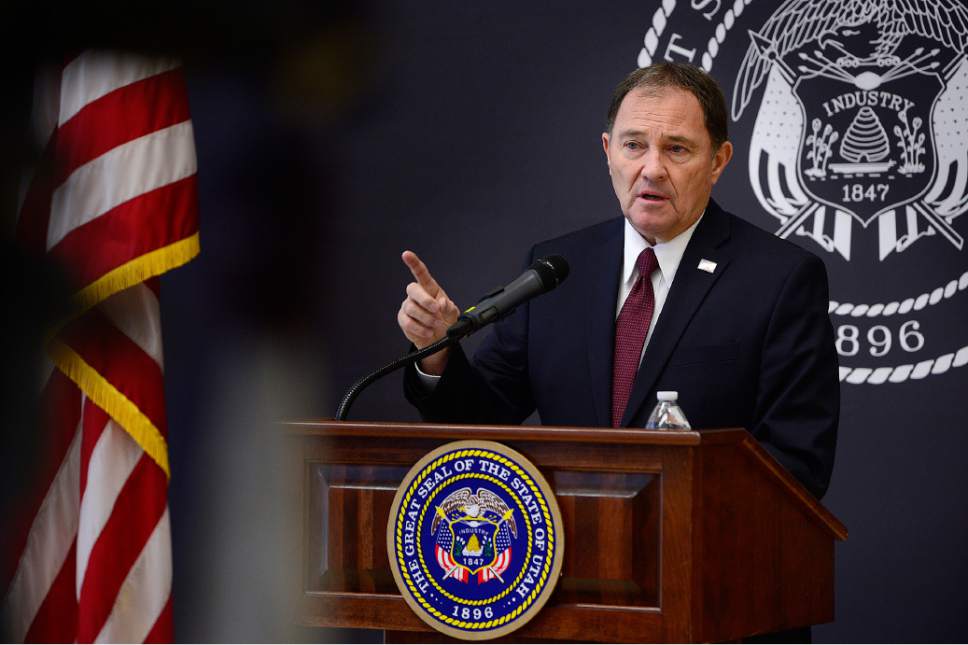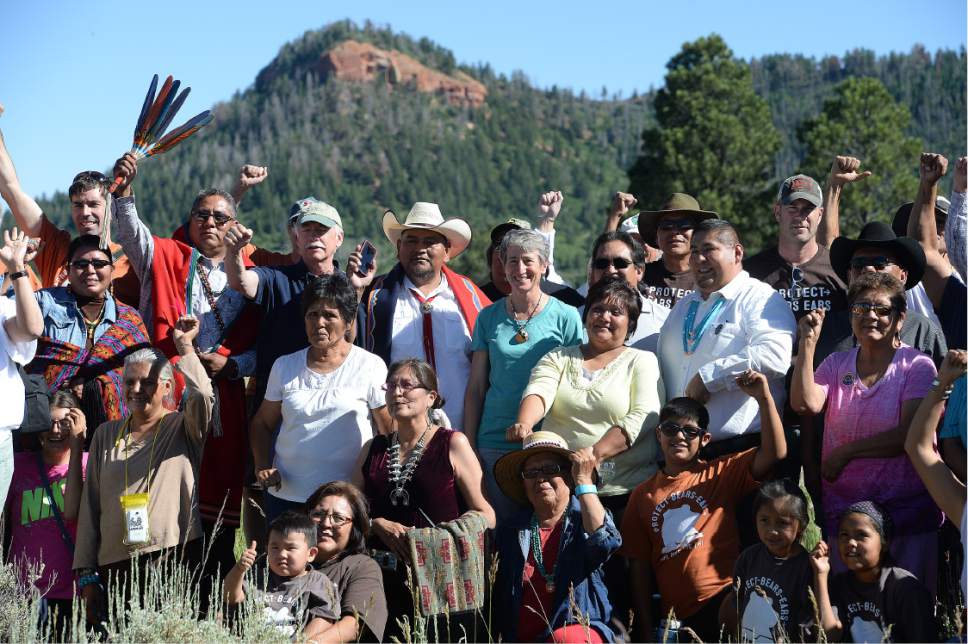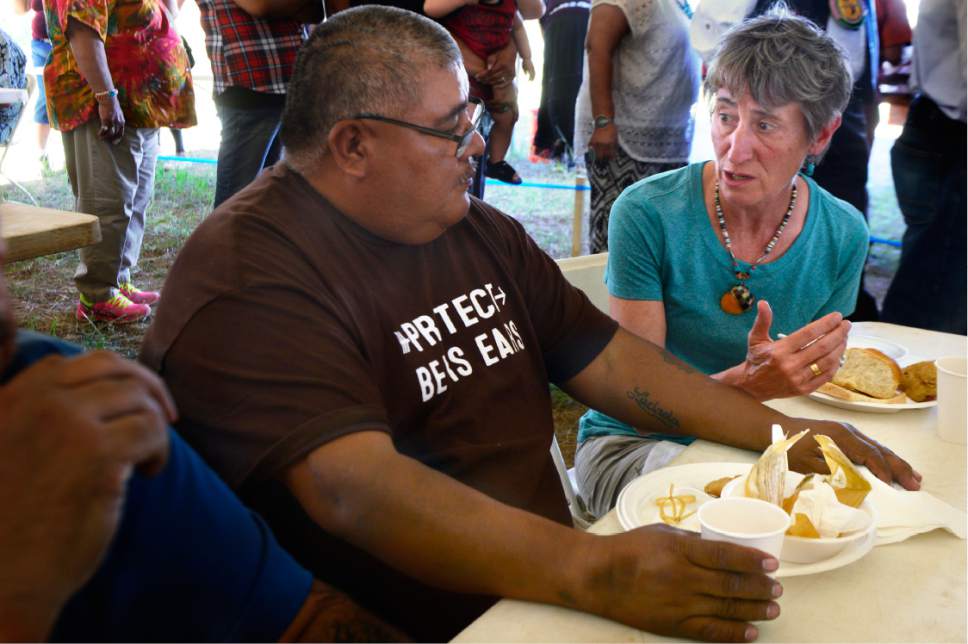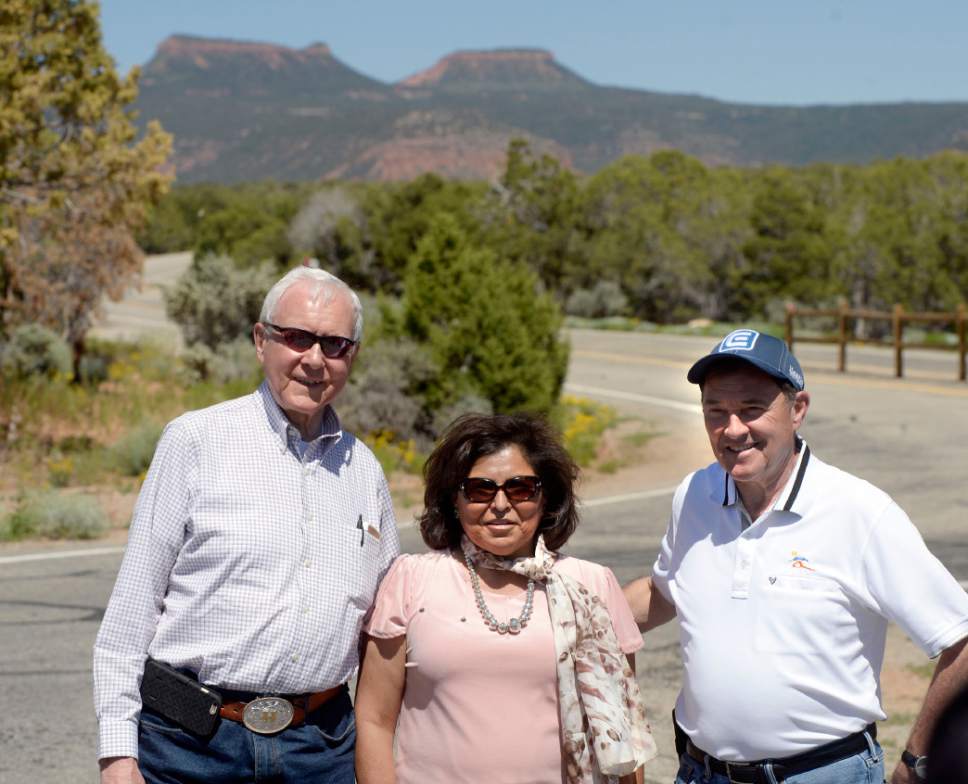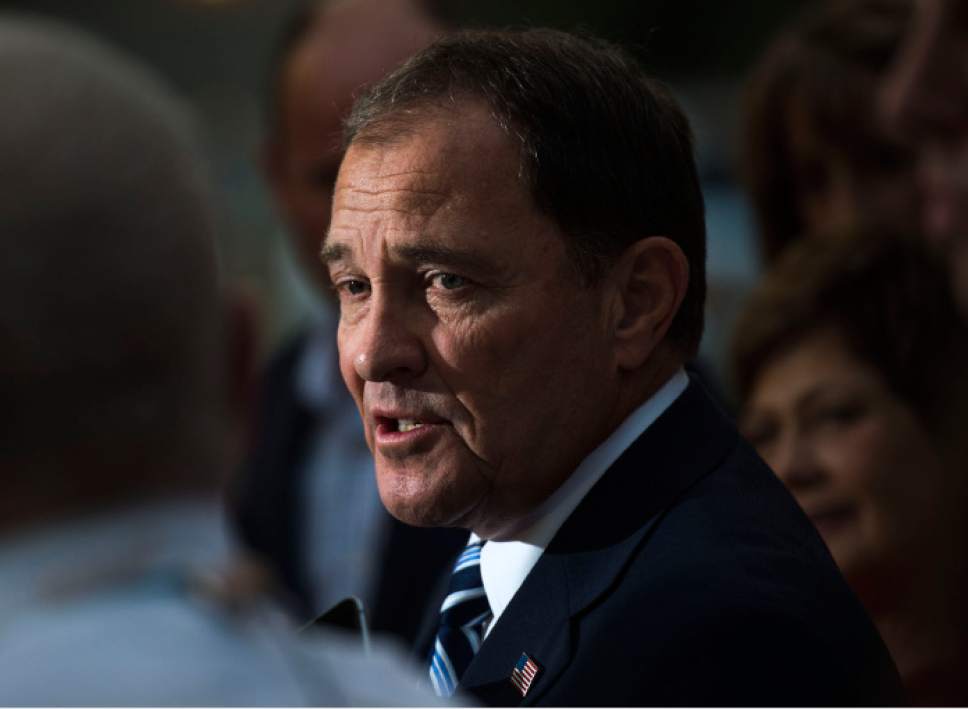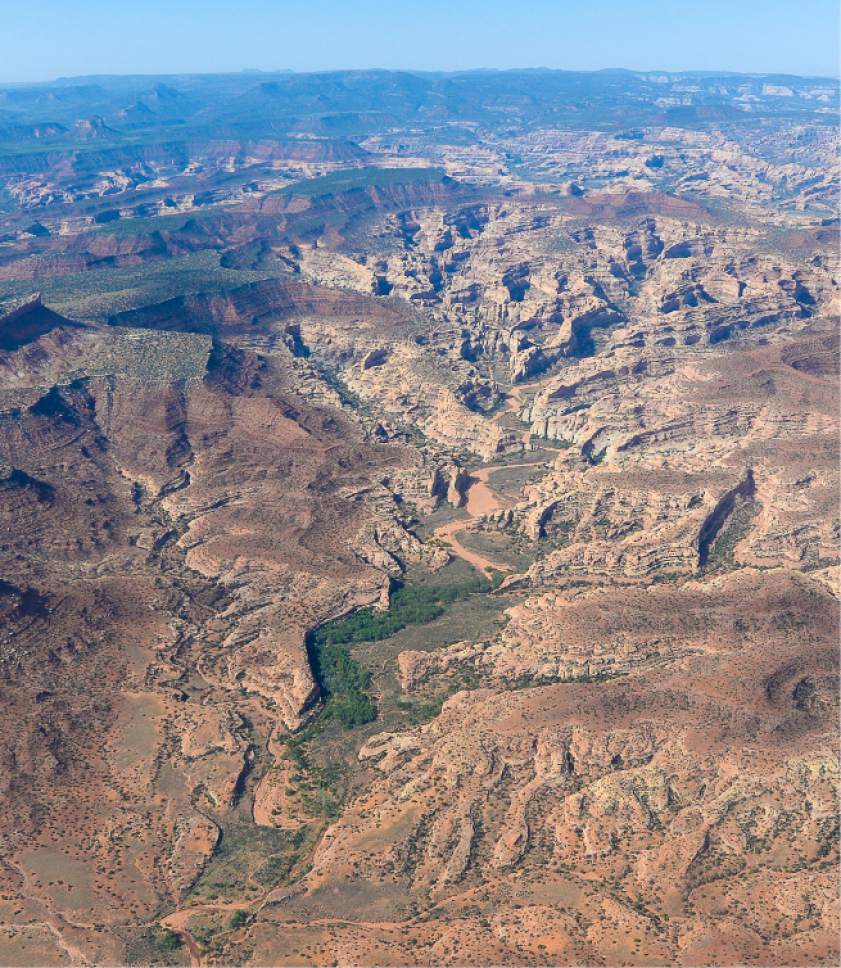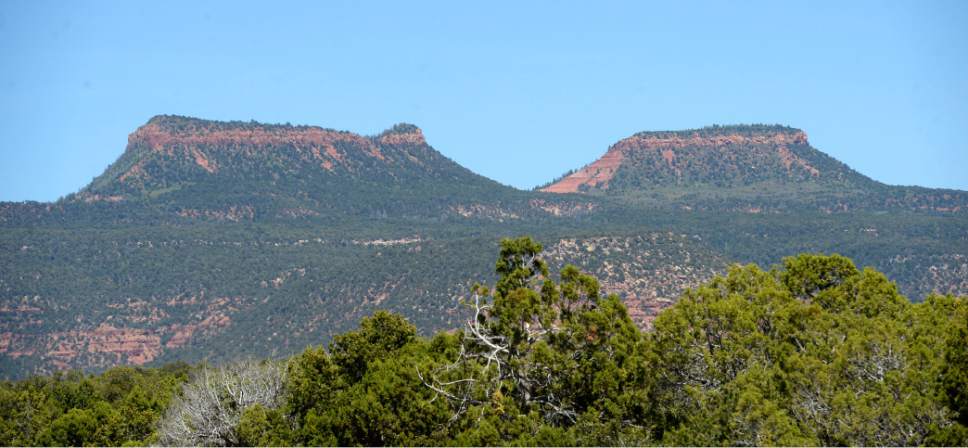This is an archived article that was published on sltrib.com in 2016, and information in the article may be outdated. It is provided only for personal research purposes and may not be reprinted.
Gov. Gary Herbert will travel to Washington in the next few weeks to meet with Obama administration officials, and he hinted Wednesday that he may take with him a proposal for the protection of Bears Ears, an area in southeastern Utah where the White House is considering creating a national monument.
Herbert would not provide details of his potential recommendation, saying that, if he did have a proposal, he would want to present it to Interior Secretary Sally Jewell before making it public.
"I don't want to scoop myself," Herbert told reporters after his monthly KUED news conference. The governor said he would like to see the Obama administration "take the lead" on working out the best way to protect the region, but he believes there are ways to approach the issue "to ameliorate the confrontational aspects."
Herbert, Utah's all-Republican congressional delegation and the GOP-dominated state Legislature have fiercely opposed the potential creation of the 1.8 million-acre Bears Ears National Monument under the power given to the president by the Antiquities Act.
Herbert reiterated Wednesday that he would prefer that part of the area (1.4 million acres) be made a national conservation area under Rep. Rob Bishop's Public Lands Initiative.
But with Congress in session for just a few dozen more days before the election — and a full schedule that includes Zika funding and passing a budget deal — President Barack Obama may be inclined to create a monument before he leaves office.
Mike Weinholtz, the Democrat challenging Herbert this election year, said he's in favor of Obama creating a Bears Ears National Monument, and he opposes the Public Lands Initiative pushed by Bishop and Rep. Jason Chaffetz "in large part out of respect for our Native American neighbors."
"They have been so mistreated throughout history and these are their sacred lands that need to be protected," Weinholtz told The Salt Lake Tribune's editorial board Wednesday. He said he met with tribal leaders in San Juan County to discuss the proposal and that he described Herbert's opposition to a national monument as part of "a natural knee-jerk reaction here in Utah to anything the federal government does."
Jewell was in southeastern Utah last month for a hearing to gather public input on the monument and toured the site, inspecting some of the areas where historic American Indian artifacts have been looted or destroyed.
Herbert said that in the next few weeks he would travel to Washington to meet with Jewell and Bureau of Land Management Director Neil Kornze. Despite the tight time frame, Herbert said he would still like to see Bishop's PLI bill become law.
"What I do support is a legislative fix. I think that's the best way that brings people together. I think it has a better outcome, certainly for the Native Americans. I don't think the national monument approach serves the Native Americans very well," Herbert said. "I'm hopeful the PLI will get through and get passed. That's a better approach by far. If it can't, let's see if there's another proposal out there."
Chris Saeger, director of the Western Values Project, an environmental group supporting the monument, said it is telling that Herbert is considering alternatives to the PLI.
"The fact that Governor Herbert is throwing Congressman Bishop and the Public Lands Initiative under the bus is a sure sign that the bill cannot pass in time to become law by the end of the year," Saeger said. "Congressman Bishop should stop this pointless political charade and start working with the administration to address the imminent threats to the Bears Ears."
The Antiquities Act would not give Obama the latitude to create a conservation area in the region, but the monument designation, depending on how it is worded, could give broad discretion to the administration to craft a management plan that could be more permissive or more restrictive.
Twitter: @RobertGehrke
— Tribune reporter Matt Canham contributed to this story


